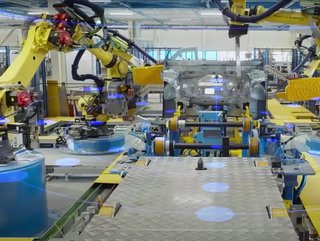Ford's Industry 4.0 EV Manufacturing Expansion Plans

Ford is expanding its industrial system to manufacture more of its next-generation electric vehicles. Its newest assembly plant in Oakville, Ontario, will open in 2027. The creation of Ford’s new BlueOval City campus in Tennessee will be Ford’s first Industry 4.0 plant.
Ford's legacy manufacturing and EV leadership
Ford Motor Company is headquartered in Dearborn, Michigan, US, and has been building cars since 1903. Kimberly Casiano was the first Hispanic woman to serve on a Fortune 100 top five corporate board and is now a Board Member at Ford Motor Company. As a result of this - and its other sustainability efforts - we included Ford in our Top 10 Most Diverse Manufacturing Companies.
The construction of Ford’s new advanced auto production complex, the BlueOval City campus, will include Ford’s Tennessee Electric Vehicle Center assembly plant. Ford’s first Industry 4.0 plant will use automation and connectivity to create superior quality and advance manufacturing efficiency.
The plant will offer a well-stocked paint shop and vehicle assembly equipment, such as 4,000 tonnes of stamping to be used to produce sheet metal stampings for Ford’s next all-new electric truck. Construction of the factory is on time and Ford hopes to be ready to deliver electric vehicles in 2026.
Ford's commitment to a profitable electric future
Meanwhile, at the Oakville Assembly Plant, Ford plans to overhaul its factory, from a gas vehicle assembly plant into an EV manufacturing powerhouse, ready for the launch of Ford’s new three-row electric vehicles, by 2027. This launch was previously targeted for 2025, but the extra two years will allow Ford to take advantage of emerging battery technology, with a goal to provide customers with increased durability and better value.
“We value our Canadian teammates and appreciate that this delay will have an impact on this excellent team,” said Jim Farley, Ford President and CEO. “We are fully committed to manufacturing in Canada and believe this decision will help us build a profitably growing business for the long term.”
“We are committed to taking care of our valued Oakville employees through this transition,” added Bev Goodman, President and CEO at Ford Canada. “While this change requires a revision to the timeline, it will support a viable and growing future for our company, employees and dealers.”
Additionally, Ford’s expansion at its Ohio Assembly Plant will build an all-new electric commercial vehicle for Ford Pro customers. Employees at the plant will be given wearable technology to support high-quality and safety-driven manufacturing.
Read more about wearable teachnology in manufacturing here, in this exclusive interview with Ravinder Dahiya Professor of Electronics & Nanoengineering at University of Glasgow & IEEE fellow.
******
Make sure you check out the latest edition of Manufacturing Digital and also sign up to our global conference series - Procurement & Supply Chain 2024 & Sustainability LIVE 2024
******
Manufacturing Digital is a BizClik brand.
- Exotec: Warehouse Automation & The British Alcohol IndustrySmart Manufacturing
- SAP’s AI Joule set to Transform Supply Chain ManufacturingAI & Automation
- Top Ten: Diverse Companies in ManufacturingProduction & Operations
- How Smart Factories are Reshaping the Manufacturing SectorSmart Manufacturing






